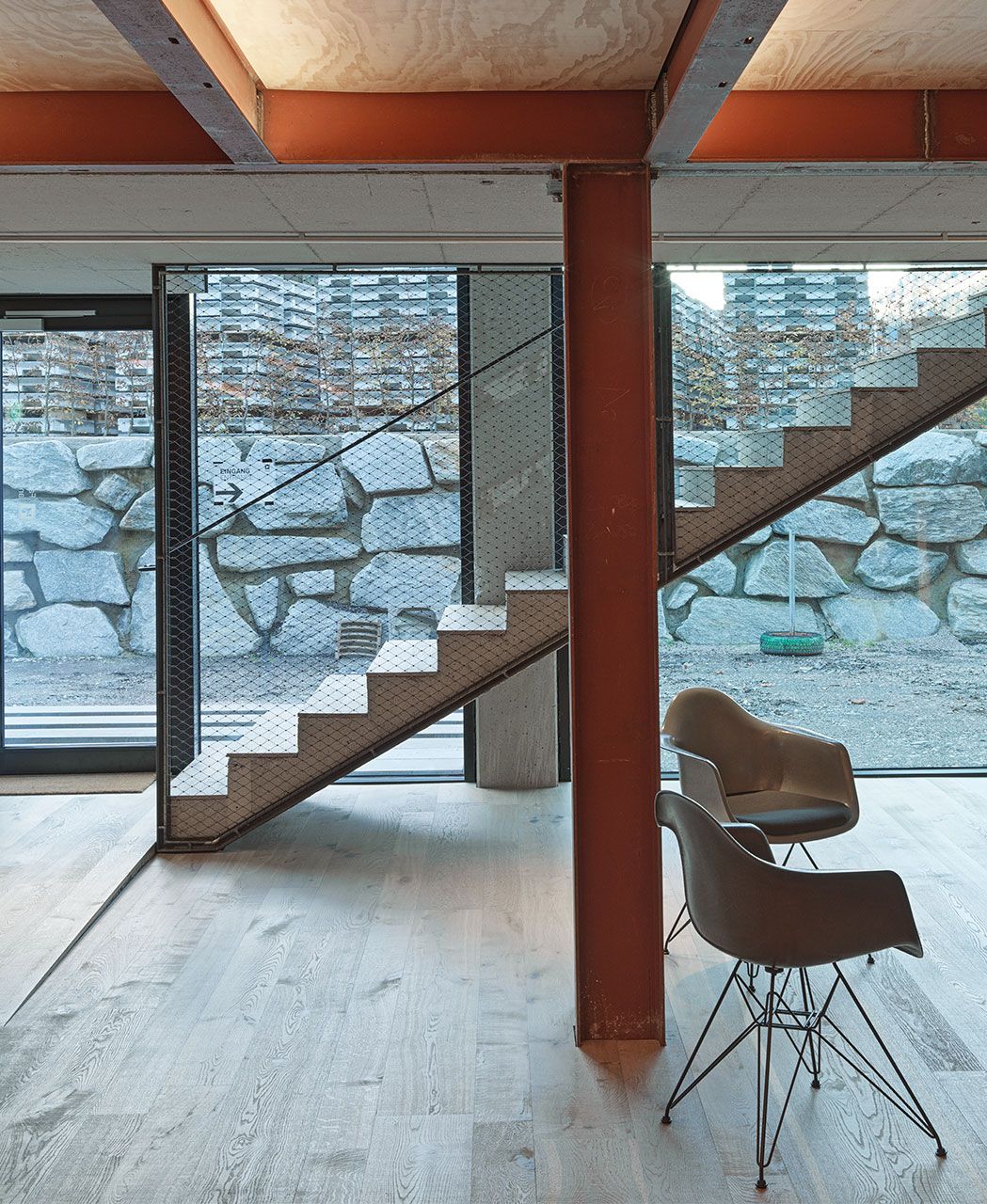Rieder Campus glemm21 recognised: Finally genuine sustainability
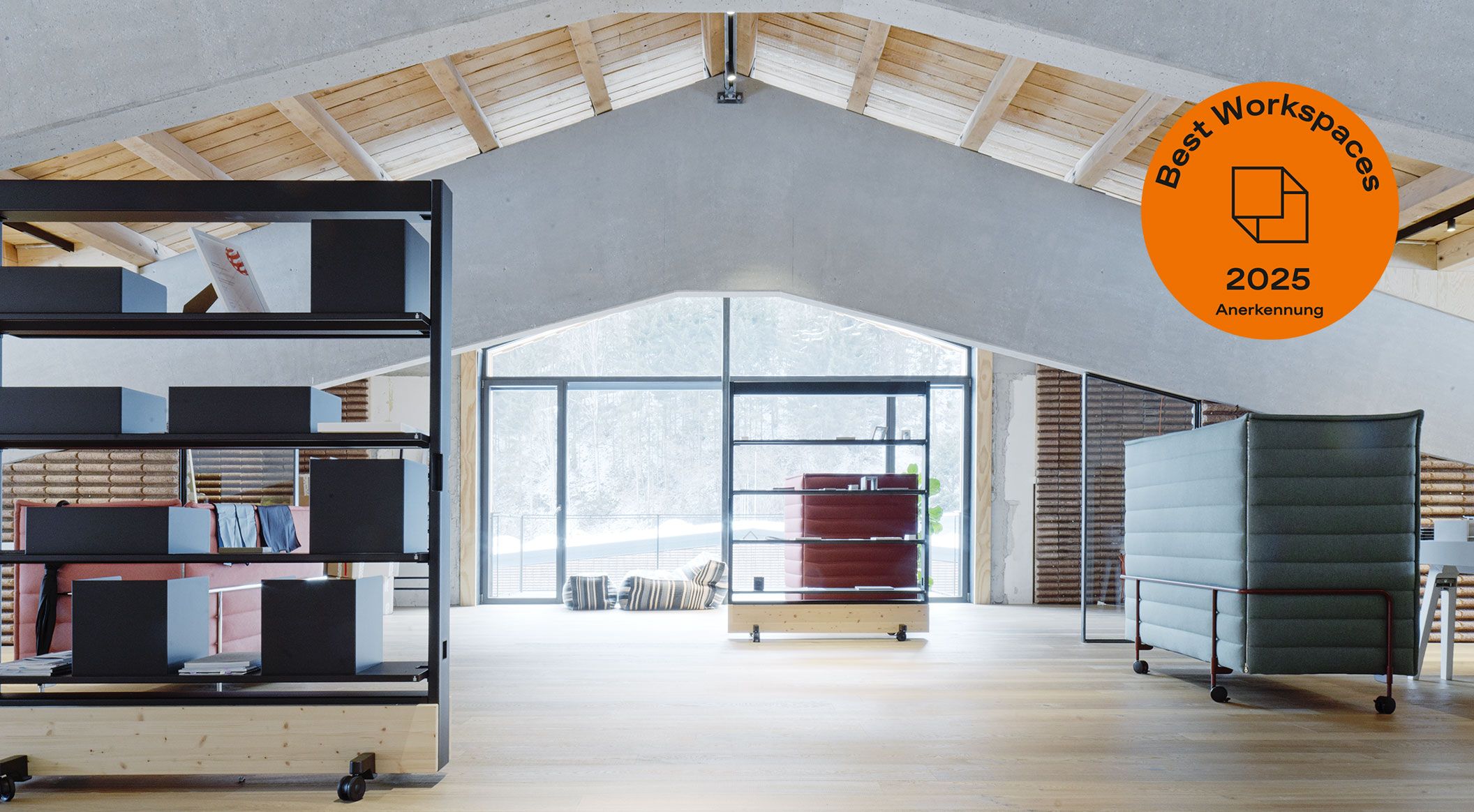
Rethinking the workplace
“If you love what you do, you’ll never work a day in your life.” – This quote from Confucius was aptly reflected at the Best Workspaces Award 2025 by Callwey Verlag. Awarded were modern work environments that go beyond functional offices: spaces that inspire, connect, and place people’s wellbeing at the heart. The top 50 projects from German-speaking countries were featured in the book Best Workspaces 2025. Among them: the new Rieder Campus glemm21 in Maishofen, which received one of three special commendations.
How we work shapes how we live. A modern workplace must offer more than mere function – it should create atmosphere, foster emotional connection, and build identification. Architecture plays a key role: it can bring people together and encourage creativity. That is precisely the ambition behind Rieder’s new headquarters: a place reimagined from an existing building that fosters connection, innovation, and growth.
The jury praised the overall concept. “Finally genuine sustainability! This campus is no ordinary office,” said jury member Sabrina Tafelmeier. “It’s a stage for innovation, a laboratory for new ideas, and a home for creative work. It calls us to think bigger, to be bolder, and to create spaces that enable real futures.”
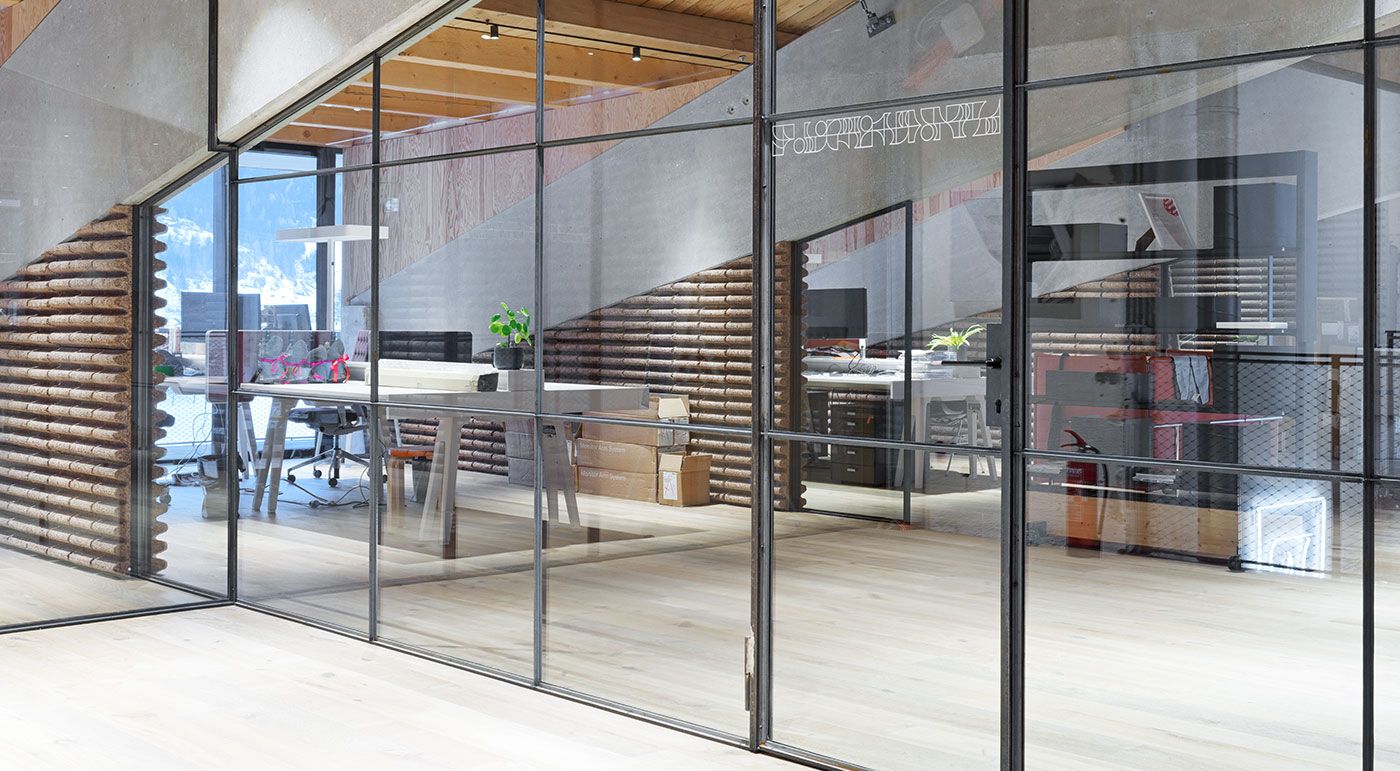
Sustainability through preserving what’s existing
The new glemm21 campus was created from a disused bus garage – an example of how forward thinking architecture can be realised through revitalisation. Instead of building anew, Rieder deliberately chose to preserve the existing structure – a choice that is both ecologically and aesthetically convincing. Wolfgang Rieder explains: “Not building anything new, but reusing existing elements is by far the most effective way to save embodied energy and avoid land sealing. That’s why we pursued this route resolutely.”
Numerous materials were reused during the conversion: an I-beam from 1958, 150 tonnes of recycled steel beams, tiles from the old wash hall, used furniture, floor coverings, grass pavers, and a wall cladding in Swiss pine. By combining these with high-quality new materials, a deliberate contrast is created – a bold statement for circular building with character. The concept is complemented by a pellet heating system, a photovoltaic installation, efficient LED lighting, an e-mobility concept, use of wood, and low CO₂ glass fibre reinforced concrete facade panels.
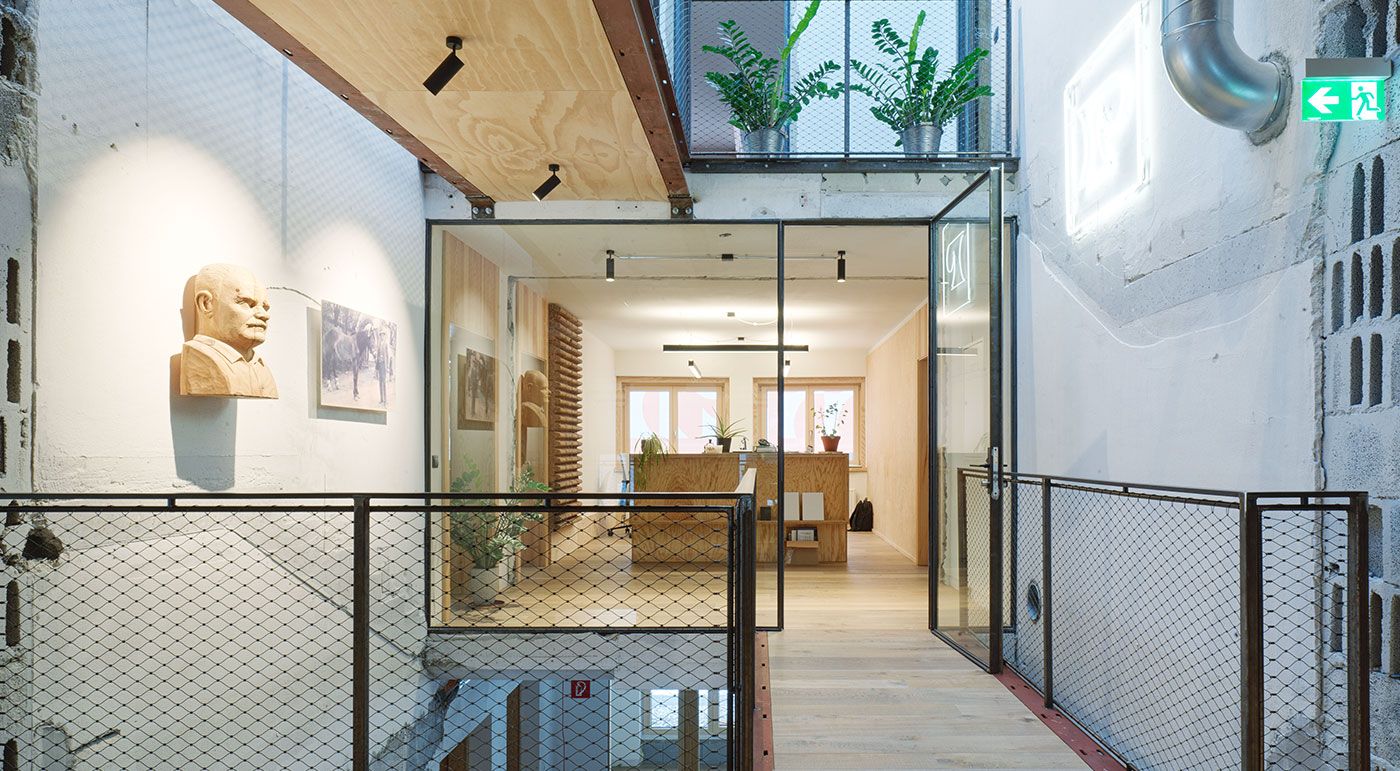
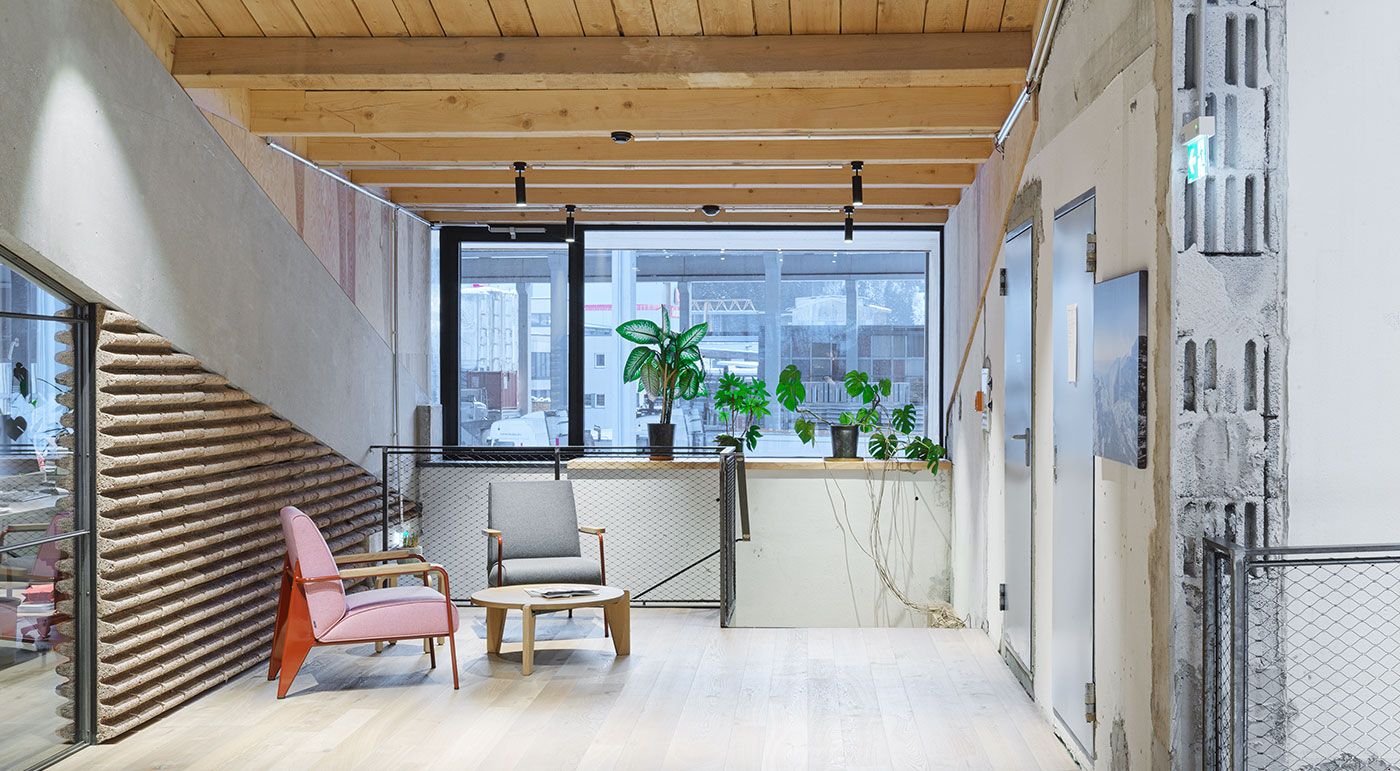
Architecture that brings people together
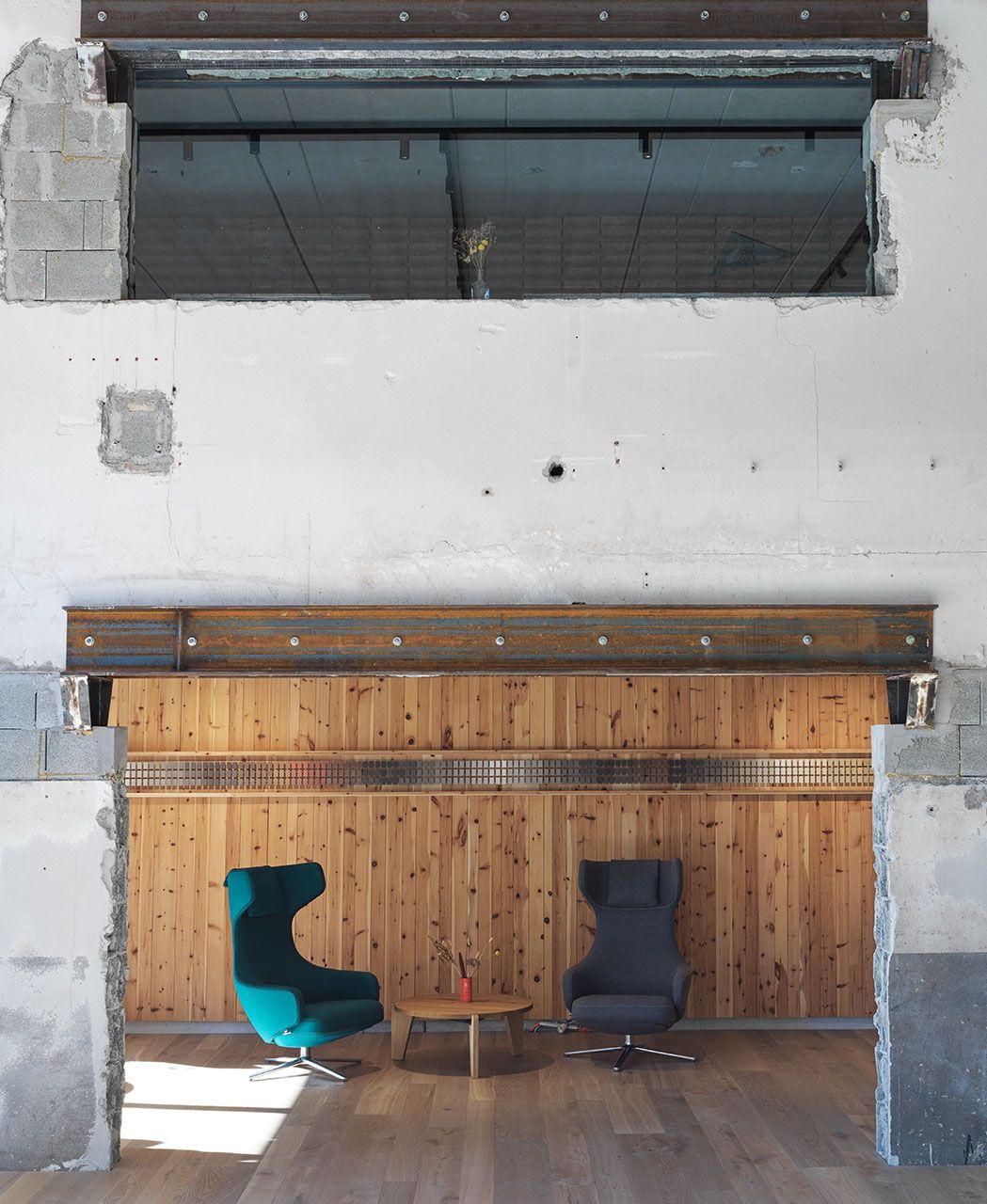
The real value of glemm21 lies inside: in how people interact and meet. Together with the architecture firm Kessler², a human-centred concept was developed. The guiding principle: architecture should serve people, not exalt itself. Architect Gerald Kessler sums it up: “Our aim was to create a pleasant place that invites lingering, supports concentration, and offers flexible, varied use. The chosen materials should convey warmth and identity and imbue the building with its own aura and sense of departure.”
Walls were opened, window areas extended, old staircases removed, and new airspaces created. The workspaces offer both retreat and interaction. In collaboration with Vitra, spatial relationships were analysed and flexible concepts developed – with mobile work zones, retreat areas, and open meeting spaces, for example around the central coffee machine in the entrance area. This structure promotes exchange, autonomy, and agile processes. Flexible zones give freedom to switch between focused work and creative dialogue depending on the task and mood. Art, materials and architecture merge into an inspiring environment where creativity and innovation can flourish. Rieder’s products are not just developed here—they become a tangible part of everyday life: materials can be experienced directly at the workstation, surfaces grasped and concepts tested.
A campus with stance and future
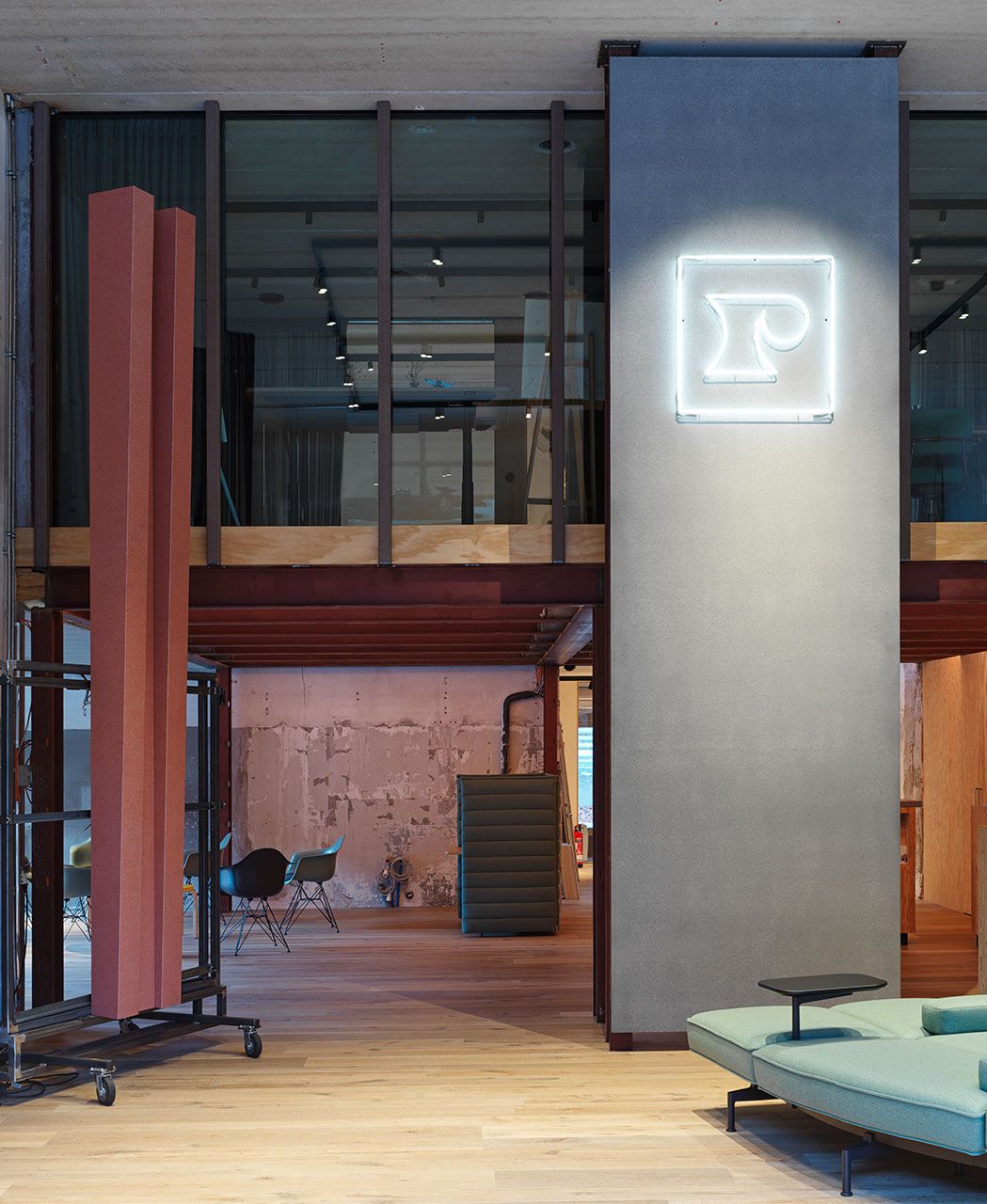
At Rieder Campus glemm21, sustainability, design, and corporate culture converge in a coherent, inspiring and open working environment. A place that excels not only through its thoughtful spatial concept, green outdoor areas and ergonomic design but also through its emotional appeal: the feeling of being welcome and able to thrive.
The Rieder Campus is a living example of how something old can become new—not by replacing, but by transforming. And how a good workplace can offer not just space, but meaning, identity and inspiration—creating fertile ground for future ready innovations.
